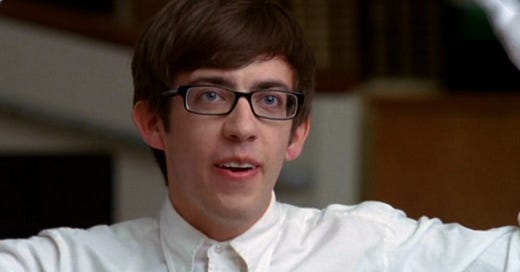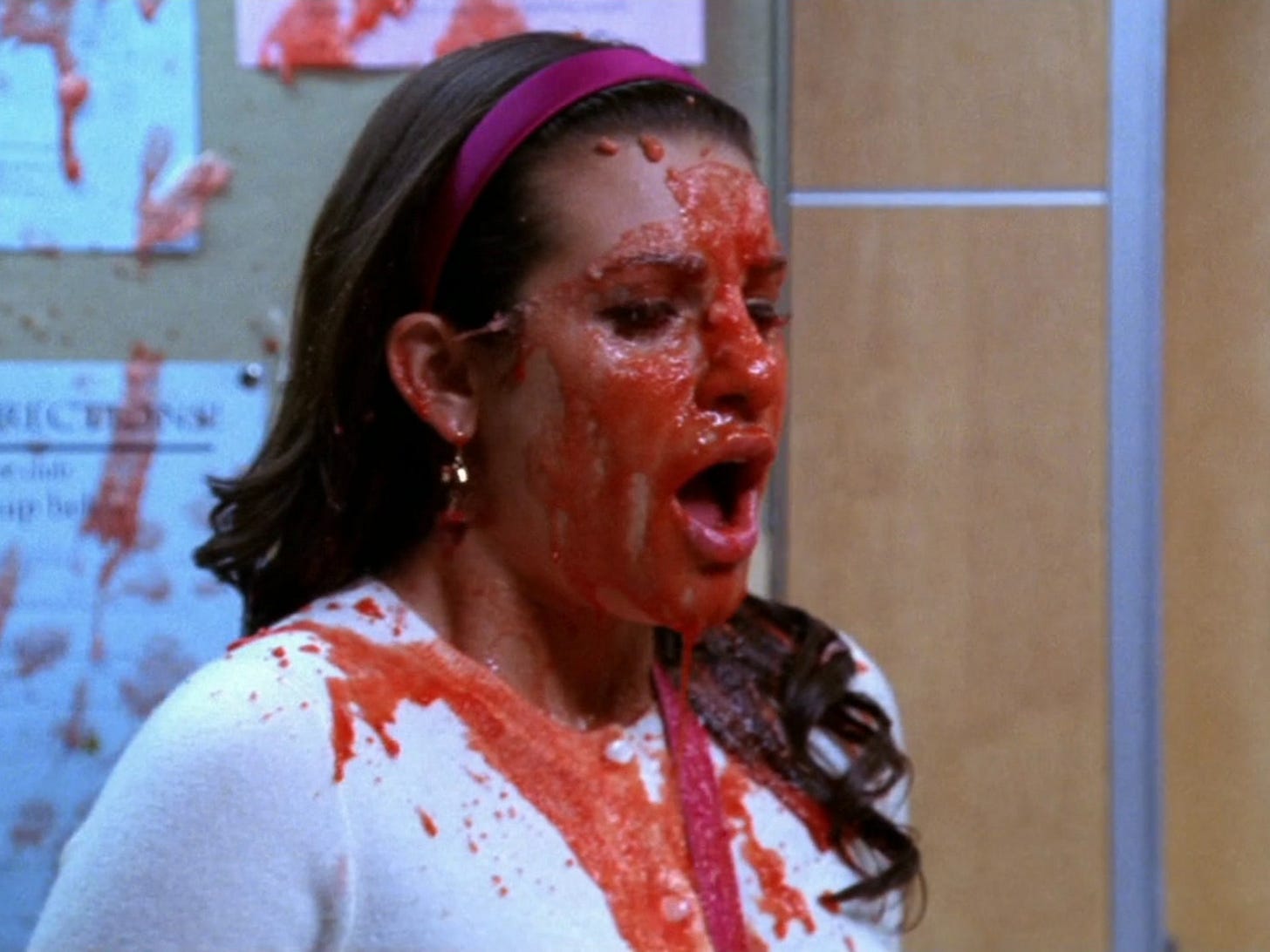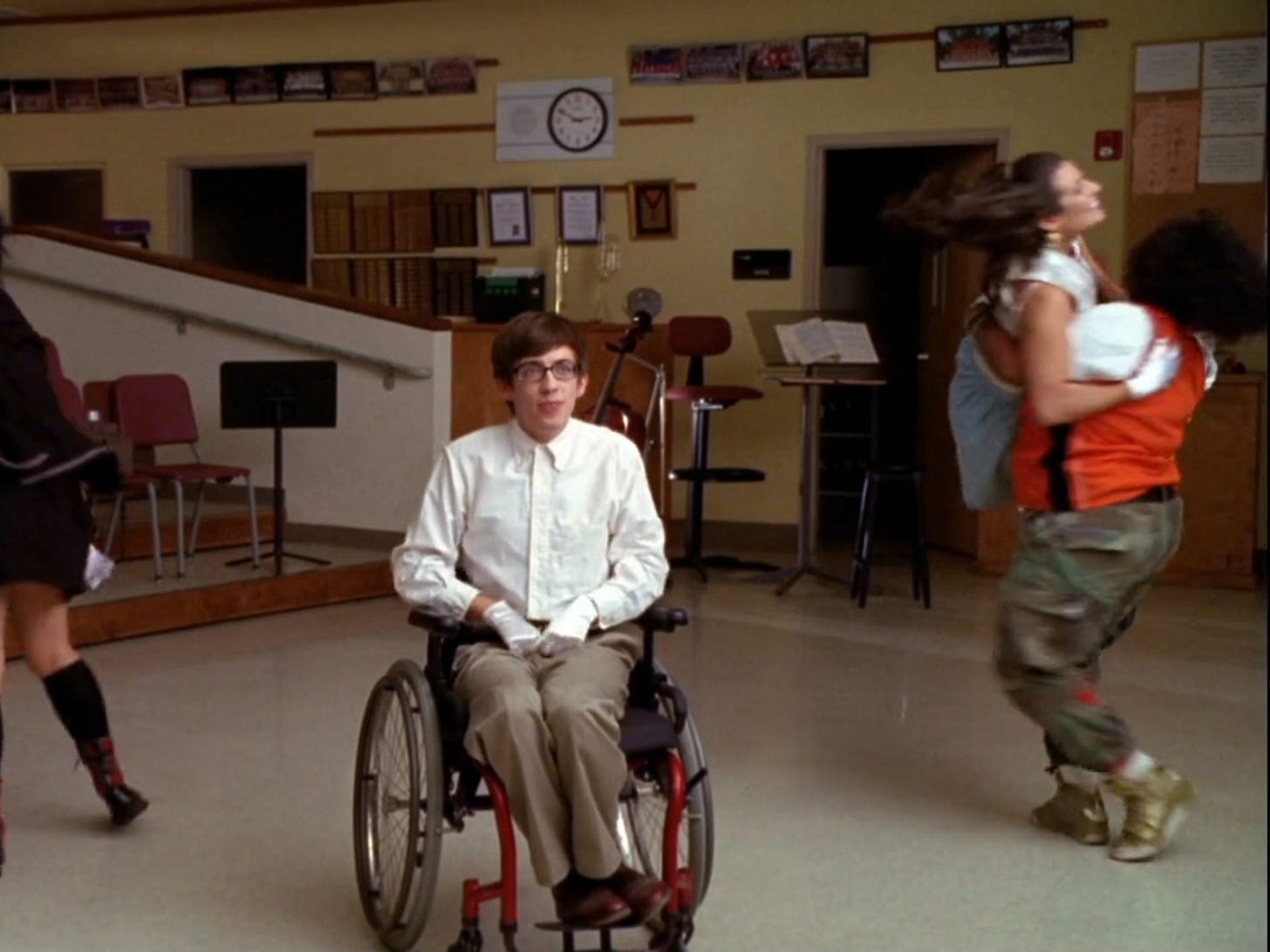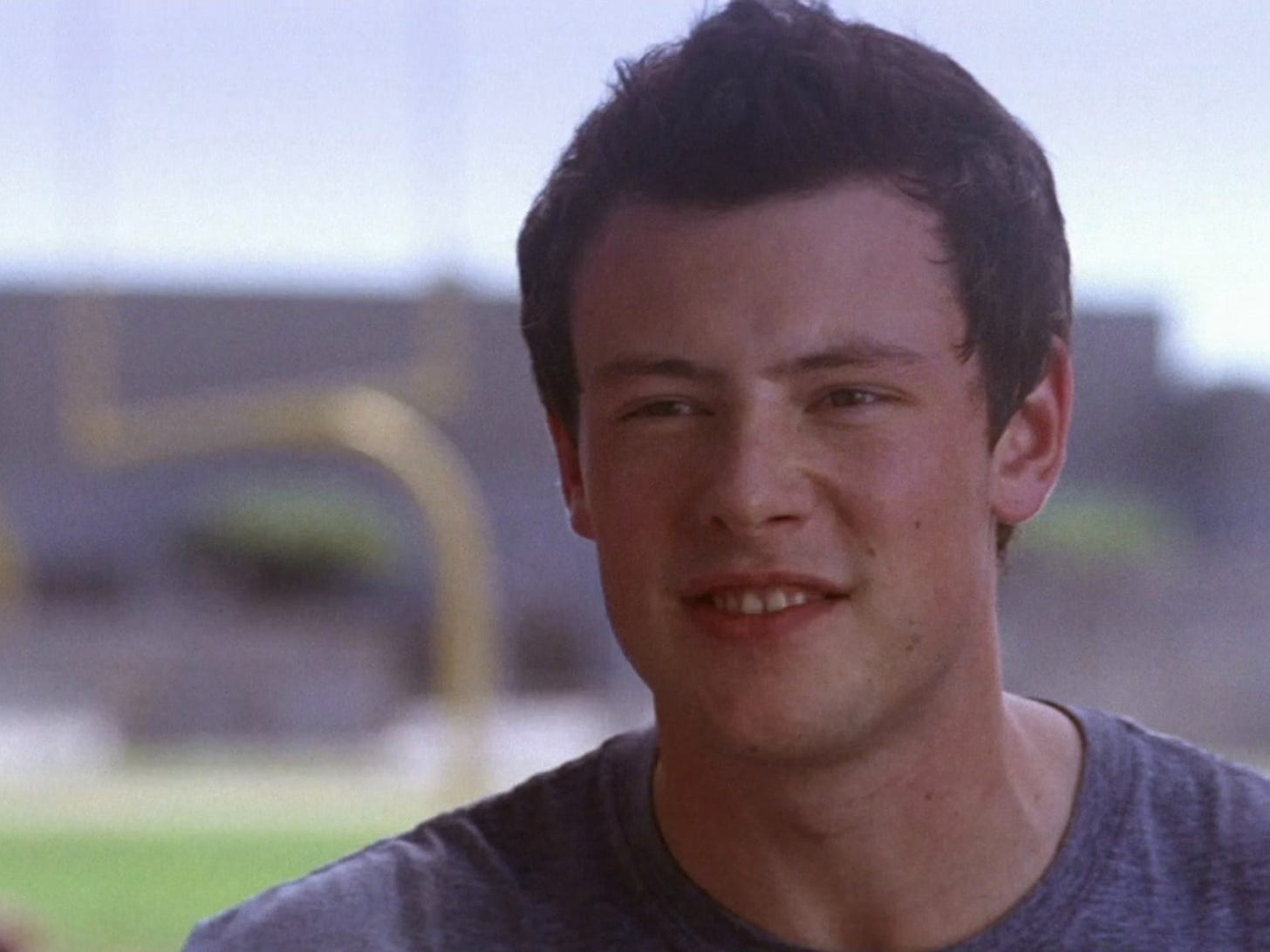The 'Glee' Pilot Has Awful Representation and Is Good Television — Two Things Are True at Once
It will always be sad to write about Glee, given all of the tragedies and scandals associated with the cast. May Cory, Naya and Mark rest in peace. I hope Mark’s alleged victims are healing.
Google tells me that Glee’s pilot aired on May 19, 2009, which shocks me. At the time, I was a year away from graduating college and settled at my transfer school after leaving a small liberal arts college in Pennsylvania for my mental health.
In hindsight, I was prescribed the wrong medication for anxiety and depression, but it was still time to go. I couldn’t handle being the only wheelchair user and one of a handful of disabled students on a tiny campus anymore.
I’m revealing this for a reason — because learning the airdate of Glee’s first episode drastically changed my plan for this review.
In my mind, it aired one or two years after the Grey’s Anatomy pilot, so I was going to give it a pass for some of its disability representation.
Kevin McHale now knows that he shouldn’t have played the show’s wheelchair user, Artie, as an able-bodied actor and went so far as to tell Business Insider’s Ayomikun Adekaiyero that he’d only join a reboot or revival of Glee as a completely different, non-disabled character.
I don’t begrudge McHale for taking a job he was offered in the early aughts that turned out to be wrong for him, although I wish authentic casting of minority groups was common sense at the time.
What I can’t get over is the fact that the writers and creators of the series had the word “cripple” fall out of Principal Figgins’ (Iqbal Theba) mouth so quickly and casually. Or that they had a wheelchair-using character get stuffed into a port-a-potty as a joke.
Honestly, both of these things might happen in reality. And Glee’s self-aware humor makes it all confusing to watch, especially as a disabled person.
I’m not opposed to using the “C” word as an adjective to describe objects or myself. Like the “cripple bathroom stall.” But I no longer use the word freely in front of others, unless I know that the people I’m with are disabled and use the word too.
I believe it’s our word to reclaim, much like some words in other minority communities. But it’s not “my” word all of the time and I try to avoid offending people.
It’s jarring to hear Artie referred to by the term in a scene where Figgins is describing how pathetic he thinks New Directions is to Mr. Schuster (Will Morrison). I believe it’s such an offensive word for able-bodied people to use that it should be censored in reruns.
There’s no way to know if Ryan Murphy and his team knew exactly what they were doing when they wrote the word in the script, but excusing it away quickly is being too nice.
It was 2009, not 2005. I have all the mixed feelings about Grey’s Anatomy, but thanks to Shonda Rhimes, the world had about four years of blind casting at it’s best (although that show has made other mistakes).
Sadly, the industry was mostly complacent about poorly representing the disabled community. We deserved better, still do, and it still baffles me that Rhimes paved the way for nuanced storytelling for some minorities while the disabled community is still making baby steps in 2024.
The pilot of Glee is about stereotypes, but it’s also about pushing against them. It’s disappointing that only Finn (Cory Monteith) does this successfully.
I also really don’t understand why Artie is clearly meant to be a pretty traditional, stereotypical “nerd” too. It’s the first episode, so there is so much room for character growth in the scripts. But someone missed a chance to explore “invisibility” here.
Glee is rarely nuanced, but minority communities are always fighting to prove they’re not monoliths. Making Artie a white, disabled nerd rings lazy, but the writing of the other minority characters is, too.
Naya Rivera is on the edges of the pilot as Santana, as are Amber Riley and Jenna Ushkowitz as Mercedes Jones and Tina Cohen-Chang, respectively.
Riley gets the most air-time as a bit of a stereotypical “diva” and while I was happy to see that Tina wasn’t a stereotypical smart, rule-following, Asian trope, Finn’s line, “Tina, what are you good at?” doesn’t do her any favors.
All of that said, “Glee’s” pilot episode is excellent.
It’s hard to understand why Will so suddenly decides to leave his secure teaching job for God knows what, God knows where upon learning he’s going to be a father — talk about forced conflict. Plus, mayhaps there was a better way to entice Finn into glee club than blackmail involving drugs, Mr. Schu.
But nearly all the characters introduced are worth rooting for, so the stage is set well (pun intended). We get the backstory of the white quarterback (surprise, surprise), the main players and sidekicks are clear, and that rival group from that other high school does one hell of an Amy Winehouse cover.
If I never looked up the date of the pilot, I’d be making so many excuses for this episode, and that’s not where I expected to land.
I’m also very endeared by Emma Pillsbury (Jayma Mays), although the Sharpee heart around Will’s face is more than a little bit concerning.
It’s important to hold Glee accountable for its disability representation, so this time I won’t give up on it, but it’s going to be a long ride.








